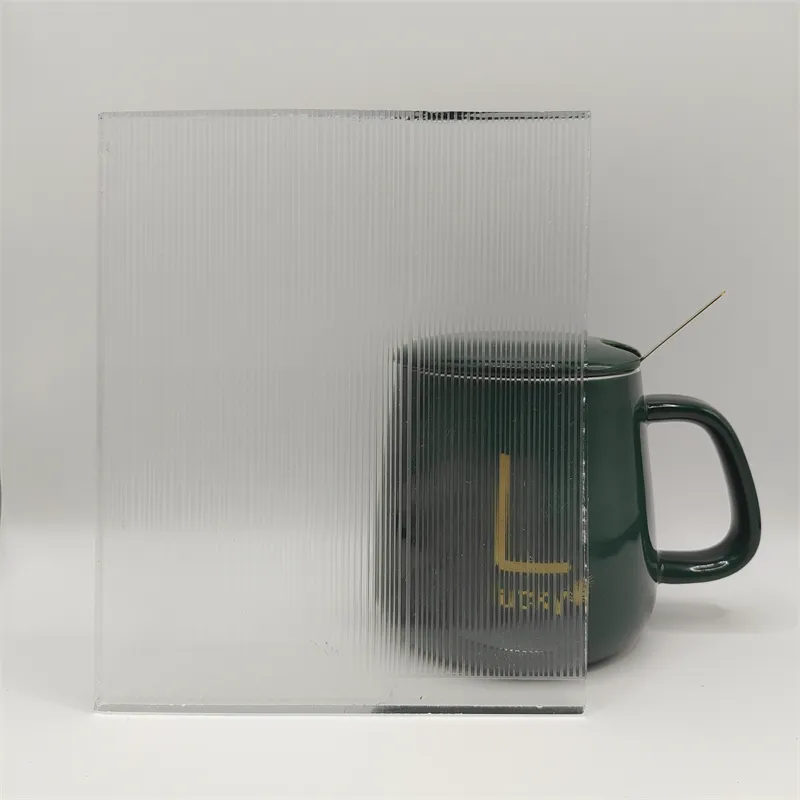Dec . 09, 2024 17:01 Back to list
Application and Benefits of 6mm Float Glass in Modern Architecture
The Versatility and Applications of 6mm Float Glass
Float glass, a widely used material in construction and manufacturing, is known for its remarkable clarity, smooth surface, and excellent optical properties. This article delves into the specific characteristics and applications of 6mm float glass, highlighting its significance in various sectors.
What is Float Glass?
Float glass is produced through a unique manufacturing process that involves floating molten glass on a bed of molten tin. This technique results in a seamless, flat sheet of glass that boasts uniform thickness and transparency. The term float originates from this process, which allows for the creation of glass sheets that are smooth on both surfaces and free from imperfections.
Key Characteristics of 6mm Float Glass
1. Thickness and Weight 6mm float glass is characterized by its thickness, which strikes a balance between strength and weight. At this thickness, it remains manageable for installation while providing adequate durability for various applications.
2. Optical Clarity One of the most significant advantages of 6mm float glass is its high level of optical clarity. The combination of its smooth surface and uniform thickness ensures minimal distortion, making it ideal for applications where clarity is paramount.
3. Light Transmission 6mm float glass allows a high percentage of light transmission, typically around 90%. This quality makes it particularly valuable in applications requiring natural light while offering varying levels of privacy depending on its treatment.
4. Versatility Float glass can be easily treated and processed, allowing it to suit a wide array of applications. It can be cut, laminated, tempered, or coated to enhance its performance, depending on the specific requirements of the project at hand.
6mm float glass

Common Applications of 6mm Float Glass
1. Architecture and Construction 6mm float glass is frequently utilized in building facades, windows, and doors. Its aesthetic appeal and functional properties make it a favorite among architects and builders. In commercial buildings, large glass panels made from 6mm float glass create a sense of openness and invite natural light indoors, enhancing the comfort and ambiance of the space.
2. Interior Design In interior design, 6mm float glass is employed for various purposes, including partitions, tabletops, and decorative mirrors. Its reflective surface can enhance the visual appeal of a space, creating an illusion of depth and brightness. Additionally, laminated versions can provide safety and sound insulation, making it suitable for high-traffic areas and noisy environments.
3. Automotive Industry Although less common than tempered or laminated glass, 6mm float glass can be used in some automotive applications, particularly in non-structural components such as side or rear windows. Its clarity and lightweight nature contribute to vehicle aesthetics while allowing for effective visibility for drivers and passengers.
4. Retail Displays Retailers often use 6mm float glass for display cases and shelving. The glass's clarity ensures that products are showcased effectively, while its sturdiness offers the necessary support to hold a variety of items, from clothing to electronics.
5. Safety and Security While standard 6mm float glass is not as strong as tempered or laminated glass, it can still play a role in safety applications when combined with other materials or treatments. For instance, it can serve as a barrier in locations where visibility is essential but high impact resistance is not a primary concern.
Conclusion
6mm float glass stands out as a versatile material that blends beauty with functionality. Its clarity, lightweight nature, and ability to be customized make it suitable for a wide range of applications across various industries. Whether enhancing the aesthetic appeal of a building, contributing to interior design, or serving functional roles in retail and automotive industries, 6mm float glass is an excellent choice for both architects and manufacturers alike. As we continue to explore innovative uses for glass in our environments, the role of 6mm float glass is likely to expand even further, showcasing its timeless appeal and adaptability in an ever-evolving market.
-
Safety and Style with Premium Laminated Glass Solutions
NewsJun.24,2025
-
Reinvents Security with Premium Wired Glass
NewsJun.24,2025
-
Premium Float Glass Line for Modern Architecture
NewsJun.24,2025
-
Low Emissivity Glass for Energy-Efficient Architecture
NewsJun.24,2025
-
High-Performance Insulated Glass Solutions for Modern Architecture
NewsJun.24,2025
-
Elevates Interior Style with Premium Silver Mirror
NewsJun.24,2025
Related PRODUCTS














